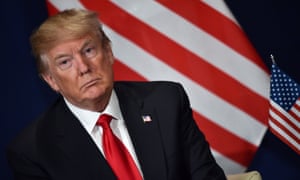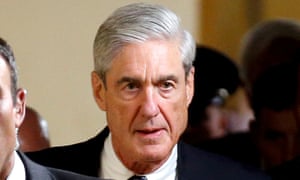Team Trump Just Blew Its Cover
By
John R. Schindler • 01/30/18 10:45am
Opinion
President Donald Trump on January 25, 2018. NICHOLAS KAMM/AFP/Getty Images
In a recent column I noted how President Donald Trump seemingly can bend time in a near-supernatural fashion. Our commander-in-chief’s “fine-honed ability to make days seem like weeks and weeks seem like months, even years,”
I observed, has the remarkable effect of nullifying even grave mistakes by jam-packing them into short periods of time so “they blur into each other inside the news cycle and soon melt into the morass of Trumpism.”
Even by Trumpian standards, yesterday was one for the record books. “Cover” is an espionage term that means a spy is pretending to be something he’s not to do his job: most often a diplomat, but there are many covers. This features prominently in spy novels and films yet in practice is frequently mundane and far from exciting. At root, cover exists because you will quickly be unmasked and probably arrested if you let everyone know you’re not the insurance salesman you pretend to be, rather a spy. Cover exists because it must.
Yesterday, after months of slippage, Team Trump finally blew its cover, exposing that it possesses a strange and unsettling fealty to the Kremlin for which there is no longer any benign explanation. Any one of yesterday’s bombshell developments would overtake the news cycle for weeks in any normal White House, yet this administration is anything but normal.
First, it was reported in the Swiss media, then picked up by
The Daily Beast, that President Trump’s inner circle can be firmly linked to Russian intelligence. For months, speculation has swirled about the June 9, 2016 meeting at Trump Tower in Manhattan between top members of Team Trump and a Russian delegation led by Natalya Veselnitskaya, a Moscow attorney with high-level Kremlin connections. Donald Trump, Jr. and Paul Manafort (who is currently under indictment) attended the meeting, which they implausibly insisted was about Russian adoptions.
To anyone acquainted with Russian espionage tradecraft, that meeting appears to be a classic Kremlin effort to establish clandestine links with top members of the Trump campaign a few months before the 2016 election.
Veselnitskaya, then, was playing the role of a trusted cut-out for Russian intelligence, giving Moscow plausible deniability in case the secret meeting came to light—which it subsequently did.
A recent Swiss scandal illuminates who Veselnitskaya really is. As established in Swiss court papers, a top federal investigator, known only as Victor K. due to Swiss privacy laws, in late December 2016 was lured to Moscow to meet with Veselnitskaya. For years, K. had been the lead investigator of Russian organized crime and financial malfeasance in Switzerland. His supervisors forbade K. from traveling to Moscow, given his position, but he did so anyway, in secret. There, Veselnitskaya attempted to recruit him as a mole inside the Swiss investigation of Kremlin crimes.
This is typical Russian espionage tradecraft yet again, and this case firmly establishes that Veselnitskaya is no ordinary lawyer, rather a high-level operative for Kremlin intelligence. This is demonstrated by the fact that K. has been fired from his position for his “unauthorized clandestine behavior” including bribery, violations of Swiss secrecy laws, and traveling to Moscow to meet with Russian spies.
Before the morning’s Veselnitskaya bombshell could be fully processed, the news cycle refocused on the fact that yesterday was the final deadline for implementation of Congressionally-mandated sanctions on Russia. Since his inauguration a year ago,
Donald Trump has dragged his feet on sanctions, which clearly displease the Kremlin, and last July Congress put its foot down, passing new sanctions by staggering margins (419-3 in the House, 98-2 in the Senate). This is not a partisan issue on Capitol Hill.
President Trump reluctantly signed the bill into law last August, describing it as “seriously flawed,” then did nothing. He had until midnight to act, and it went down to the wire, while the president ultimately punted. The White House at the last minute decided that
no new sanctions are required by the law, a choice that’s sure to induce fury in Congress, instead choosing a new public list of 114 Kremlin higher-ups plus 96 Russian oligarchs—which the White House pointedly noted was “not a sanctions list.” The bottom line is that President Donald Trump cares more about placating Vladimir Putin than following U.S. law or the will of Congress.
This so-called “Putin’s list” issued by the Treasury Department just 12 minutes before the deadline seems to be for show. It has already been ritually denounced by Russia’s president as a “hostile act,” yet the list’s lack of enforcement teeth is the tell. Embarrassingly, the list includes people known to President Trump, for instance the oligarch Aras Agalarov, who hosted Trump at the Miss Universe pageant in Moscow in 2013. Trump subsequently appeared in a music video by Agalarov’s son Emin, a soi-disant popstar. Intriguingly, Emin Agalarov indirectly facilitated the June 2016 Trump Tower meeting with Natalya Veselnitskaya.
Nevertheless, sanctions deadline drama was overtaken late yesterday afternoon by an unprecedented situation unfolding on Capitol Hill, where the House Permanent Select Committee on Intelligence, which conducts oversight of our Intelligence Community, was meeting in secret to vote on releasing a memo written by the staff of the HPSCI’s Republican chair, Rep. Devin Nunes. This four-page memo has been the talk of the town for the last week, since Nunes claims it demonstrates malfeasance by the FBI in some sort of conspiracy to prevent the election of Donald Trump as president in 2016.
While the memo has been hailed as showing misdeeds “far worse than Watergate” by the right-wing echo chamber—
including Sean Hannity, the most pro-Trump talking head at the very pro-Trump Fox News—that’s impossible to establish since hardly anybody outside Congress has seen it. Democrats have pushed back that the memo is no more than a highly skewed effort to defend the president against Special Counsel Robert Mueller’s investigation of Trump’s Kremlin ties. The memo, as explained by Rep. Adam Schiff, the top Democrat on the HPSCI, is merely “a hodgepodge of false statements and misleading representations” based on selective reading of intelligence documents.
Moreover, any memo based on secret sources that are not shown has little if any value in establishing facts; it’s an inherently political, not analytical, document. For this reason, the HPSCI’s Democratic minority crafted a classified rebuttal to the Nunes memo. To placate the right-wing firestorm created by Fox News, late yesterday afternoon, the HPSCI voted to release the classified Nunes memo to the public this week. The vote was
along partisan lines (there are 13 Republicans and eight Democrats on the committee) and, in a telling move, the HPSCI voted to not release the minority’s rebuttal to the Nunes memo.
Above all, there has been no move to release the underlying intelligence behind the memo, thus rendering it useless as a substantive document.
In other words, this is pure political theater of a cynical kind designed to distract attention from the Mueller inquiry into the White House’s secret Russian connections. Most seriously, Nunes has shattered decades of political consensus on his important committee. The HPSCI’s job of making sure our spy agencies are acting ethically and legally is supposed to be above partisan politics; this tradition has been broadly respected since the HPSCI and its Senate counterpart were founded in the 1970s. Now Nunes has trashed all that to protect Trump from the Russia investigation. It’s necessary to ask Devin Nunes and all the Republicans on his committee what was so important that it was worth making the HPSCI a nakedly partisan instrument, in a move that will have long-term consequences for our national security, all of them negative.
To round out a remarkable Monday, last night The Daily Beast broke the storythat Julian Assange, the WikiLeaks boss, secretly has been actively involved in helping Donald Trump’s efforts to get Robert Mueller and Congress off the president’s back. Assange, who’s been holed up in the Ecuadorian embassy in London since 2012, on the lam from criminal charges, has been a vociferous defender of Donald Trump and, oddly for someone who heads an organization that’s ostensibly devoted to exposing secrets, he’s been communicating in secret to hurt Trump’s enemies.
Last weekend, Assange took to Twitter, where he direct-messaged his friend Sean Hannity, the Fox News star, telling him that he had “some news about Warner”—an apparent reference to Sen. Mark Warner, the top Democrat on the Senate intelligence committee and a prominent Trump critic—and they needed to communicate in “other channels.” Except Assange didn’t message Hannity, rather a woman in Texas with a similar Twitter handle to Hannity. Aside from being an amusing mistake by an alleged cyber-guru, Assange’s misstep reveals some important facts.
Sean Hannity has never hidden his relationship with Assange, whom he admires, but this mistake demonstrates that the men have been in regular contact, exchanging dirt on President Trump’s enemies. Given Hannity’s role as a top media booster of Team Trump, this merits scrutiny. Moreover, Hannity and Assange have been in touch frequently enough that Assange could refer to “other channels” of communication without further explanation. In other words, this is a clandestine relationship, as spies worldwide would call it.
This is no small matter, since Assange’s ties to the Kremlin—which I’ve been pointing out for years—are now commonly understood. WikiLeaks has been termed “ a hostile intelligence service” by none other than Mike Pompeo, Trump’s own CIA director. Pompeo added that WikiLeaks enjoys a standing clandestine relationship with Russian military intelligence or GRU, including working together in the dump of hacked Democratic National Committee emails in the summer of 2016, as I reported at the time.
Given this, we need to ask questions about Hannity’s relationship with the Kremlin, considering
his track record of pushing rancid Russian disinformation on his Fox News program. Hannity is a propagandist, not a journalist, by his own admission, but if he has served as a witting conduit for lies crafted by Russian spies, Fox News needs to explain why they are airing Kremlin Active Measures aimed at the American public and calling it “news.” Intelligence Community friends have told me that Sean Hannity has been under counterintelligence investigation for some time, based on his clandestine ties to Moscow. Now we know why.
John Schindler is a security expert and former National Security Agency analyst and counterintelligence officer. Read his full bio here.


 what a joke brehs .
what a joke brehs . "
" "
"





